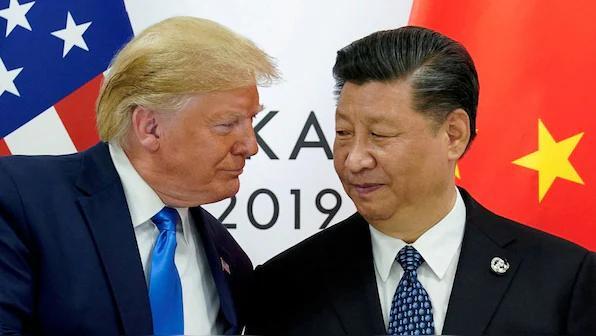
China Refuses to Join Denuclearisation Talks with US & Russia
In a move that has sent shockwaves across the globe, China has announced that it will not participate in trilateral denuclearisation talks with the United States and Russia. This decision comes in the wake of a recent call by US President Donald Trump for Beijing to join the negotiations. Chinese Foreign Ministry Spokesperson Guo Jiakun has stated that the expectation of China participating in such talks is “neither reasonable nor realistic”.
The announcement was made in response to a question from a journalist at a regular press conference held by the Chinese Foreign Ministry. Guo Jiakun emphasized that China and the US are not at the same level in terms of nuclear capabilities, making it unrealistic for Beijing to participate in the talks. He also pointed out that the issue of denuclearisation is a complex one and requires careful consideration and negotiation between the parties involved.
The decision by China to refuse participation in the denuclearisation talks comes at a time when tensions between the US and North Korea are running high. The two countries have been engaged in a bitter standoff over North Korea’s nuclear programme, with the US demanding that Pyongyang abandon its nuclear weapons in exchange for economic sanctions relief. China, which shares a border with North Korea, has traditionally been a key player in the region and has been under pressure to use its influence to persuade Pyongyang to abandon its nuclear programme.
However, China has been reluctant to take a leading role in the negotiations, citing concerns about the potential risks and consequences of a destabilized Korean Peninsula. The country has instead focused on its own economic and security interests, and has been working to strengthen its relations with other countries in the region.
The US has been pushing for China to join the denuclearisation talks in order to bring Beijing’s influence to bear on North Korea. Trump has repeatedly called for China to exert pressure on Pyongyang to abandon its nuclear programme, and has threatened to impose economic sanctions on China if it fails to comply.
However, China has been unwilling to take on this role, citing concerns about the potential risks and consequences of a destabilized Korean Peninsula. The country has instead focused on its own economic and security interests, and has been working to strengthen its relations with other countries in the region.
The refusal by China to participate in the denuclearisation talks is likely to be seen as a major setback for the US and Russia, which had been hoping to use Beijing’s influence to bring North Korea to the negotiating table. The move is also likely to have significant implications for the global nuclear non-proliferation regime, as it raises questions about the ability of the international community to address the threat posed by nuclear weapons.
In conclusion, China’s refusal to participate in trilateral denuclearisation talks with the US and Russia is a significant development in the ongoing standoff over North Korea’s nuclear programme. While the US and Russia may be disappointed by Beijing’s decision, it is clear that China is not willing to take on a leading role in the negotiations. Instead, the country is likely to continue to focus on its own economic and security interests, and will work to strengthen its relations with other countries in the region.



